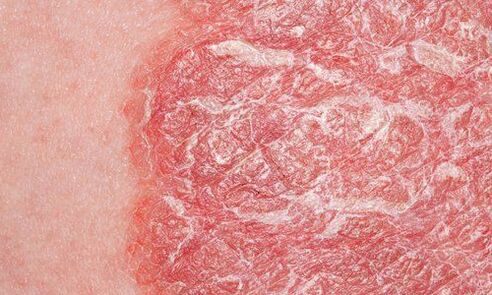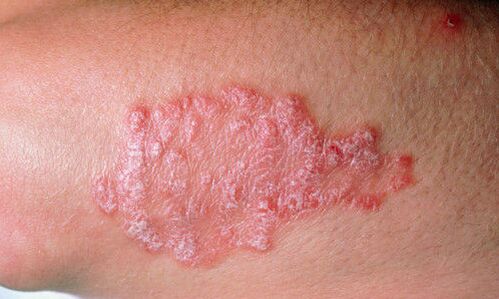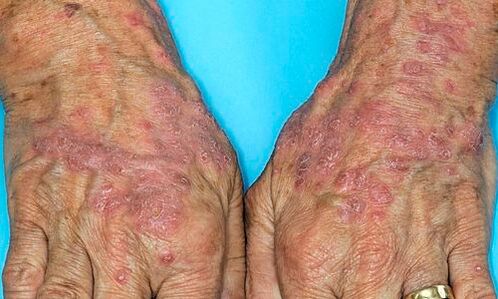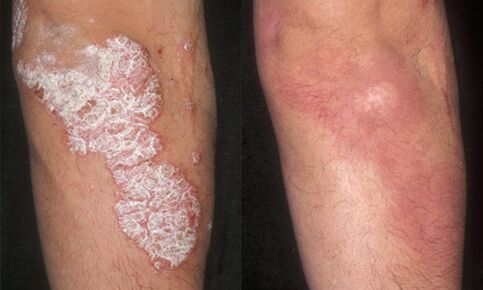Skin diseases are unpleasant in themselves. And even if long-term systematic treatment does not guarantee a positive result, the situation becomes a real problem.
Psoriasis (psoriasis) is a disease with a "rich" millennial history. Despite the reinforced, difficult-to-treat nature of the disease, everyone seems ready to recover.
Announcements about sensational drugs are full at every step, and the cure for the disease is promised by miracle tools and "innovative technologies, " healers, and online forums. Doctors-dermatologists don’t sleep either, and they do their best to study and test new drugs, but they don’t promise a miracle as a result of the treatment.
What is psoriasis
Psoriasis is called dermatosis. In this chronic, non-infectious disease, the division of skin cells occurs 28 times faster than it should be normal. The cells do not have time to fully mature, their intercellular communication is disrupted, leading to thickening of the upper layers of the skin and the formation of pronounced exfoliation and plaques.
During the course of the disease, the cells of the immune system attack the skin's own cells, so the process is accompanied by chronic autoimmune inflammation. The formed large foci are able to form their own capillaries penetrated by capillaries.



Causes of psoriasis. Can they get infected?
The course and course of psoriasis was first described by English physician Robert Willen in the early 19th century. The disease was eventually distinguished from leprosy, proving to be non-infectious in nature and thus impossible to catch from anyone else. From that moment on, active research began, which has not stopped until now. But unfortunately without much results. . .
There are many variants of the disease, the main one of which is hereditary, but this has not been definitively confirmed. Psoriasis is known to occur at any age and has become noticeably "younger" in recent years and is recorded even in newborns.
Symptoms of psoriasis
There are several types of psoriasis. The main - plaque (or common) psoriasis - is seen in 80 percent of patients. It is characterized by the appearance of small scaly patches that grow and merge into large patches - psoriatic plaques. Their surface is covered with silvery-white scales, which are easily detached from the skin when brushing teeth.
Plaques can be located anywhere on the body - the legs, back, shoulders, scalp and face, but they initially appear where there is some or no friction: the elbows, the waistline (from the pressure of the belt). and clothing), tight underwear in pressurized areas. During exacerbation, plaques grow, gradually spreading in different directions. The process is usually systemic and occurs once or twice a year.
Periods of deterioration are associated
- general weakening of the immune system,
- tension,
- eating disorders and
- other reasons (cosmetics, unusual drink or food).
In the absence of treatment, common psoriasis can have unpleasant consequences such as nail psoriasis, tear and secretory psoriasis, psoriatic arthritis, and so on.
How to cure psoriasis
The first attempts to treat psoriasis took place in ancient Greece, where the beneficial effects of sunlight on the condition of the skin were discovered. Ancient physicians also used a mixture of oils and fatty acids, the remains of which were found near the burials. In the Middle Ages, psoriasis was considered the "seal of the devil" and a kind of leprosy: people were isolated from society in a leper colony, which led to a sad outcome.
Currently, the following concept has emerged: the patient requires mandatory dermatologist monitoring and systematic treatment, including taking B vitamins, calcium gluconate, nicotinic acid, antihistamines, and anti-inflammatory drugs. Medicines are used to cleanse the liver, which plays an important role in the condition of the skin.
Appointments are strictly individual, taking into account co-morbidities. The external treatment of psoriasis, which aims to suppress the superficial process, plays an important role. Salicyl ointment is used in combination with hormonal agents, and a new drug has recently been successfully tested - an ointment, an analogue of vitamin D. The latter is produced in the skin by sunlight, but the lack of this is one reason for its vitamin D analog. pathological processes in psoriasis.

The ointment basically does not solve the problem, but it noticeably improves the condition of the skin, relieves exfoliation and facilitates the course of the disease without the side effects so rich in hormonal ointments. Patients are advised to use daily moisturizers, diet and vitamins, as well as annual spa treatments. Timely and regular therapy makes it possible to achieve a remission period, i. e. to suppress the onset of the disease for a long time.
The original method of treating psoriasis is to use Garra rufa fish, which devour the skin of psoriasis plaques without affecting healthy areas. The fish was first used in the thermal baths of Kangal (Turkey), but later appeared in many clinics and beauty salons.
An alternative image for the treatment of psoriasis
Many people with psoriasis are exposed to stress and negative attitudes towards the world around them, which exacerbates the course of the disease. It is much easier for those who have been able to develop a positive attitude towards the disease and have learned to live with it, with proper treatment to prevent it from getting worse in time. In this, they are supported by many researchers who call for the disease to be seen only as a gift from nature.
It has been observed that people with psoriasis look ten years younger than their peers and their bodies cope with wounds and internal ailments much faster than ordinary people. Increased proliferation of cells underlying the pathological process plays a positive role in the healing stages.
The skin is protected from high levels of antioxidants by radiation and ultraviolet radiation, so people can spend hours in the sun without fear of overdose. They are also protected against cancer, as defective, abnormal cells are quickly destroyed and replaced by healthy ones.
According to the biophysicist, the author of the most optimistic theory, psoriasis is a long-term experiment in nature. In his view, patients with psoriasis are carriers of humanity’s golden gene pool, which prepares nature for the future survival of humans under extreme conditions. After all, the health of those whose cells are born and die at an extraordinary rate is resistant to a number of negative factors.
Either way, psoriasis is not a reason to depress and limit social activity. You can very much "agree" with him, you just have to pay a little more attention to your health and the condition of your own skin. In addition, participation in a worldwide experiment is mandatory.























